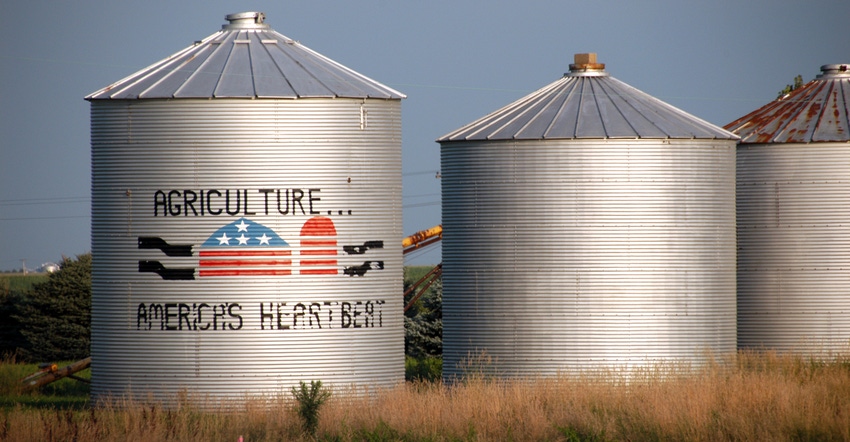June 16, 2022

Every spring, farmers put out a crop. Take a little faith. Plant a seed. Hope for the best. It feels good.
Then it rains. Or it stays cold. Or it doesn’t rain. Or the sun scorches. And those little seeds stay underground. Or the fields flood. Then you’ve gotta decide: replant or no? Will you tear up too much in the process? Is it worth it?
You know your field and how it lays, so you dig in and get some advice and have somebody look at it and do the math and make the decision.
And then you live with it.
And honestly, politics is kinda the same way.
Related: Don’t be divided and conquered
A lot of people will tell you there are easy choices to make: Just vote for my candidate! Vote out those Democrats/Republicans/Liberals/RINOs! They’re the enemy. We’ll fight for you.
I’m exhausted with candidates who say they’ll fight for me.
I’m exhausted with primaries that too often produce one crazy person on the far left and one crazy person on the far right. And then one of these people gets elected and goes off to fight for us, with a lot of other people who’ve pledged to fight for their people, and then nothing gets done because everyone’s fighting. And we wonder why D.C. or Springfield can’t get anything done.
Politics and outrage-driven cable news have worked hard to create heroes and villains.
But it’s rarely black and white. It’s rarely a clear decision.
Take a handful of Illinois legislators. It’s low-hanging fruit to bash Tammy Duckworth, Dick Durbin and Cheri Bustos because they’re Democrats. They lean far left on social issues. They lean left on economic policies, too. But what if they’ve done more for agriculture than you think?
Case in point
Durbin was almost singularly responsible for getting the Army Corp of Engineers to allocate funding for renovations on Lock 25 earlier this year, a provision that was dead in the water — until he made the phone call to the Office of Management and Budget and said they had to fund Lock 25. Your ag organizations have been lobbying for lock funding for decades. Finally, Durbin had enough power in his party to do something about it. And he did.
This spring, Duckworth worked in committee to change cost-share percentages on waterway funding in the Water Resources Development Act from 65% general revenue and 35% inland waterways trust fund to 75%-25%, with no sunset, which preserves the changes indefinitely. More federal money reduces the likelihood that funding will limit lock rehab and construction — which means faster projects, lower costs and quicker economic benefits. It’ll head to the Senate floor soon, and ag groups are optimistic the House will take up the same provisions.
These are the behind-the-scenes minutiae that make the difference.
Bustos worked hard last year to fix stepped-up basis in the tax bill — because she listened to farmers. She also listened to her rural district to craft and introduce the Next Generation Fuel Standard, a piece of legislation that will allow all fuels, including ethanol, to compete if they can meet a new fuel standard that moves the nation toward greener fuel. In terms of ethanol market impact, this bill will be the next “renewable fuel standard.”
Duckworth got solid facts about ethanol entered into the record recently.
Friends, these are elected Democrats who’ve done good work for you. They don’t vote for every issue you hold dear. Duckworth recently signed on in support of Proposition 12 in California, which would mandate sow space requirements that have no scientific justification. It’s an outrageous decision given that she represents constituents who rely on pork production.
I’m glad she supports ethanol. I wish she supported livestock producers. We should all write to her about that.
Still, she and many other politicians are not the simple villains they’re made out to be.
The middle
Republican Adam Kinzinger is in the same boat. Kinzinger was vilified for not repeating former President Donald Trump’s false claims of widespread election fraud, and farmers were angry with him for crossing party lines to vote for the infrastructure bill in November 2021. But that bill provided $2.5 billion for lock and dam rehabilitation. Illinois agriculture has been asking for better locks and dams for decades. Investing money in locks will increase market value of U.S. corn and soybeans by $39 billion. Billion, with a B.
Maybe Kinzinger is a guy who was willing to vote for Illinois and Illinois farmers, even if it meant crossing his party line. But as farmers, we’re pushing out the guy in the middle. The guy who got stuff done that matters to us.
Ag has tough choices to make at the polls, and none of them are as easy as cable news makes it sound.
We don’t get many moderate choices in Illinois, yet a lot of ag issues are moderate. Virtually every Democrat is far left on social issues and virtually every Republican is far right on social issues, and some of each party have done good things for ag — which makes it hard for many farmers to find someone they can vote for in good conscience.
But just like that replant decision, you have to dig in to get the truth. Read the emails you get from your commodity organizations. Engage with your political leaders. Call them. Understand the process and what they’re actually doing.
Don’t disengage because your cable news source told you they’re the villains.
And remember that in Illinois, if you want to have a voice in the political process and if you want your legislator to understand what you do, your farm organizations will have to work with Republicans and Democrats.
And that’s OK.
Comments? Email [email protected].
You May Also Like




